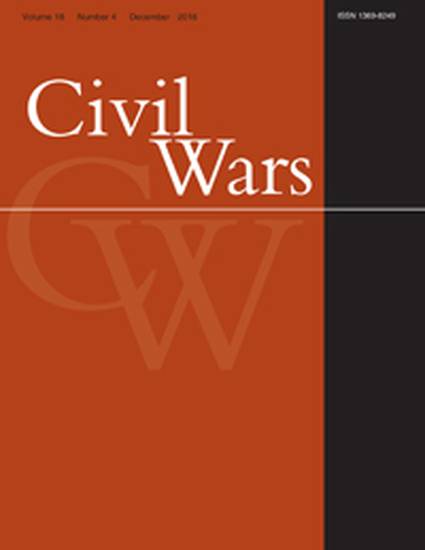
Article
The Challenges of Conflict Management: A Case Study of Sri Lanka
Civil Wars
(2007)
Abstract
Conflict processes are determined both by the larger geopolitical context and the domestic political structure. Yet current studies tend to examine either international or domestic factors, neglecting their interaction. This article undertakes an analysis of the Tamil conflict in Sri Lanka in order to examine domestic-international intersections. In countries where civil war coexists with stable, democratic institutions, conflict management becomes a complex process of balancing competing demands within the government. Under such conditions, noncoercive intervention, such as mediation, can play a more constructive role than military action. The argument of this paper marks a shift from the existing literature which tends to focus on conflicts in failed, anarchic states where coercive intervention becomes necessary.
Over the last 15 years, the number of civil wars worldwide has declined. Systemic changes such as globalization, the spread of democracy and greater international involvement in domestic affairs are encouraging states to adopt a negotiations-based approach to conflicts.1 1. Ted Robert Gurr, People Versus States: Minorities at Risk in the New Century (Washington DC: US Institute of Peace 2000); Monty G. Marshall and Ted Robert Gurr, Peace and Conflict 2005: A Global Survey of Armed Conflicts, Self-Determination Movements, and Democracy (College Park, MD: Center for International Development and Conflict Management 2005); T. David Mason, ‘Globalization, Democratization and the Prospects for Civil War in the New Millennium’, International Studies Review 5/4 (2003) pp.19–35; Mark Peceny and William Stanley, ‘Liberal Social Reconstruction and the Resolution of Civil Wars in Central America’, International Organization 55/1 (2001) pp.149–82.View all notes When exploring the ebbs and flows of ethnic conflict, a twin track approach, which looks at both the domestic and the international levels of analysis, is critical. Yet, the existing literature tends to focus on either international intervention or domestic institutions; that is, each factor is examined in isolation.
What conditions explain the management or resolution of civil wars? Uncertainty and mistrust between the state and minority groups drives political violence. Mitigating these conditions becomes essential for building peace. Extant studies of third-party efforts to resolve civil war are based on the pessimistic notion that conflict-affected states face such acute levels of institutional vacuum that they require forceful intervention. The literature fails to address cases where the dynamic is a more complex interplay of both interstate and intrastate politics. In countries where stable institutions coexist with political violence, third parties must take this intersection into account. Under such conditions, non-coercive intervention, such as mediation, can play an instrumental role in overcoming trust barriers. This article examines the Tamil conflict in Sri Lanka in order to explain the impact of domestic and international interactions upon the peace process, within the context of a relatively stable democratic polity.
The following section reviews the current body of literature in the field. Next, I discuss the reasons that make the Sri Lankan case particularly relevant to such a study. A brief history of the conflict is provided. The paper then discusses different phases of international intervention and the domestic context in which intervention occurred. The domestic and international dimensions of the conflict management process are explored. The paper concludes with a discussion of its implications. The study is state-centered and focuses on the Sri Lankan government's decisions during the conflict. While the tactics of the rebelling group are discussed, a full-length exploration of both sides to the conflict is beyond this study's scope.
Keywords
- Conflict management,
- Sri Lanka,
- Tamil conflict
Disciplines
Publication Date
January 24, 2007
DOI
http://dx.doi.org/10.1080/13698240600886057
Citation Information
Bidisha Biswas. "The Challenges of Conflict Management: A Case Study of Sri Lanka" Civil Wars Vol. 8 Iss. 1 (2007) p. 46 - 65 Available at: http://works.bepress.com/bidisha-biswas/8/
